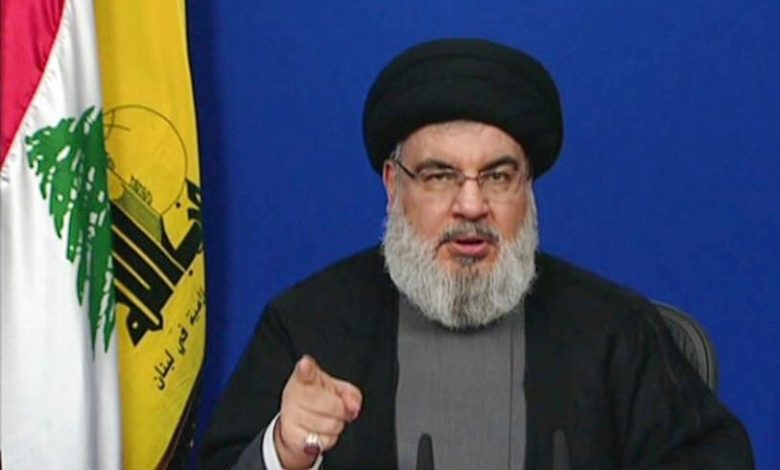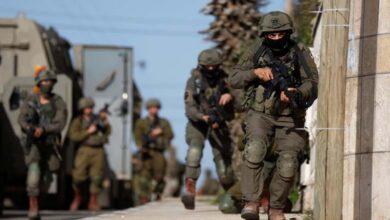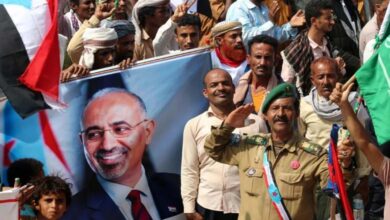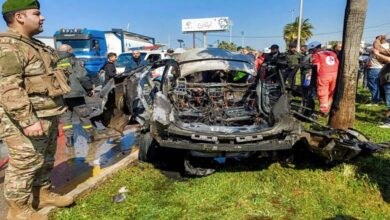After Provoking Tensions on the Israeli Border… Does Hezbollah Plan New Tactics in the Region?
Hezbollah is planning new tactics in the region

Tensions between Israel and the Lebanese Hezbollah group have reached their highest levels in years following a series of heated incidents on the border between the two countries, which the United Nations oversees and secures.
A New Strategy
The British newspaper “The Guardian” affirmed that after seventeen years since the Iranian-backed movement’s devastating war with Israel, Hezbollah seems to be attempting to create new tactics in the turbulent border region to test Israel’s resolve. The uncertainty of this “brinkmanship” policy is unknown, but the increasing frequency of border skirmishes raises the likelihood of misjudgment and escalation.
It continued, “Hezbollah knows what it can get away with.” According to Muhannad Haj Ali, Senior Fellow at the Carnegie Middle East Center, “There’s no appetite on either side for a return to wide-scale fighting, but there’s also a change in Hezbollah’s strategy.”
Haj Ali further stated, “Israeli Prime Minister Benjamin Netanyahu has historically been cautious about full-scale conflict, but the coordination between Hezbollah and Palestinian factions is better than it used to be. The U.S. administration is concerned about the current Israeli government, and Iran is not in a defensive position as it was during the Trump years,” alluding to the previous president’s policy of “maximum pressure” on Iran.
The British newspaper clarified that in June of last year, Hezbollah set up two military-style tents south of the Blue Line, the boundary between Israel and Lebanon, as well as the Golan Heights, established by the United Nations after Israel’s withdrawal from Lebanon in 2000.
The militants claimed that the area housing the tents was Lebanese. This move was small but provocative and unprecedented. After diplomatic intervention, one tent was removed, but the other remained, according to the British newspaper.
Increasing Tensions
Last month, individuals on the Lebanese side of the border – some wearing masks and military attire, or carrying the yellow flag of Hezbollah – approached the security fence that separates the two countries on at least four separate occasions. An anti-tank missile was also fired towards the town of Al Ghajar, a Syrian Alawite village in the Golan Heights occupied by Israel, which split into two parts in 2000 after the establishment of the Blue Line, according to the international news agency Reuters.
An Israeli security official said, “In recent months, the situation has been extremely tense. Many clashes have occurred along the Blue Line. Six months ago, one patrol was enough to secure the area, but today we need four patrols. We’ve raised our state of maximum readiness because the likelihood of violent clashes at any time has become very high.”
The United Nations peacekeeping mission, which patrols the Blue Line, described the situation as “extremely sensitive” and called on all parties to “refrain from any action that could lead to escalation.”
The agency added that this year has witnessed two serious incidents in the area. The first occurred in the past when an armed individual managed to cross into Israel and detonated a bomb by the side of the road, 57 kilometers (35 miles) south of the Blue Line, injuring one person. The second occurred last April when the largest barrage of rockets since the 2006 war from Lebanon was launched at Israel, in response to Israeli police raids on Al-Aqsa Mosque in Jerusalem. While the rockets are believed to have been launched by Palestinian factions based in Lebanon, it is highly likely that they were coordinated with Hezbollah, which controls a significant part of the south.
Hezbollah’s New Plans
According to the assessment of Israeli military intelligence, Hezbollah and its Iranian allies see the Israeli political crisis as a “historic opportunity.”
The newspaper continued, “Instead of allowing the Israeli government the chance to divert attention from internal problems by focusing on external threats, Nasrallah is believed to be ‘happy to sit on the fence and watch Israel bleed’.”
It added that restricting Israeli soldiers and the already depleted Israeli resources from dealing with new incursions from the north might be part of Hezbollah’s new strategy. It takes advantage of the Israeli society’s grip on an unprecedented internal division.












